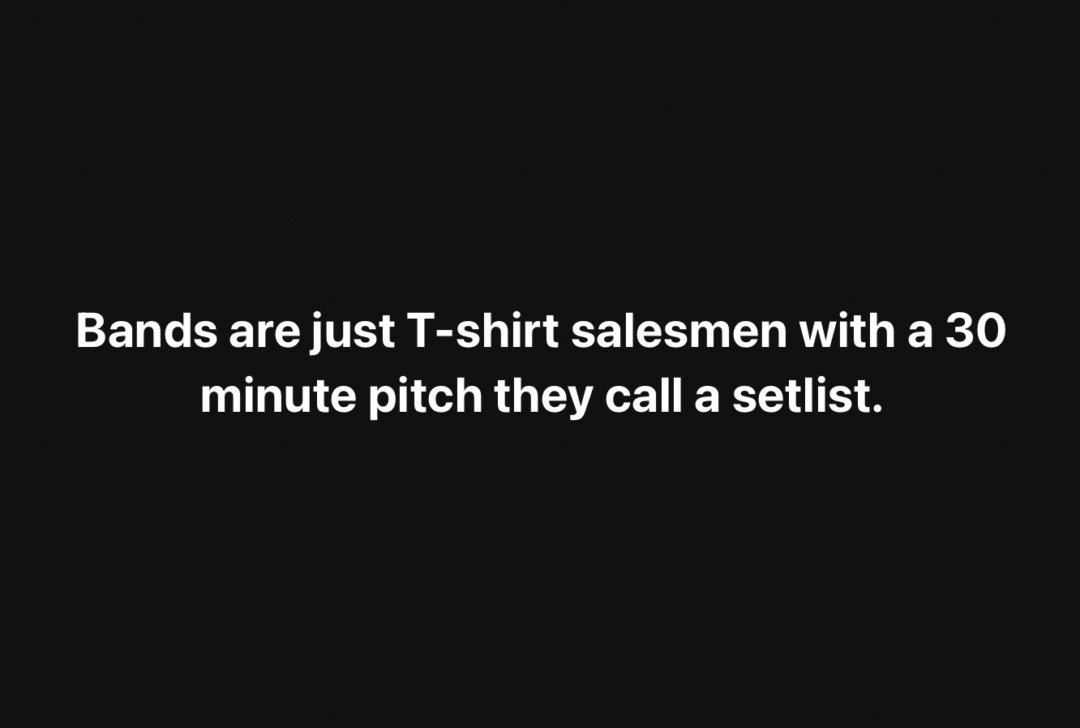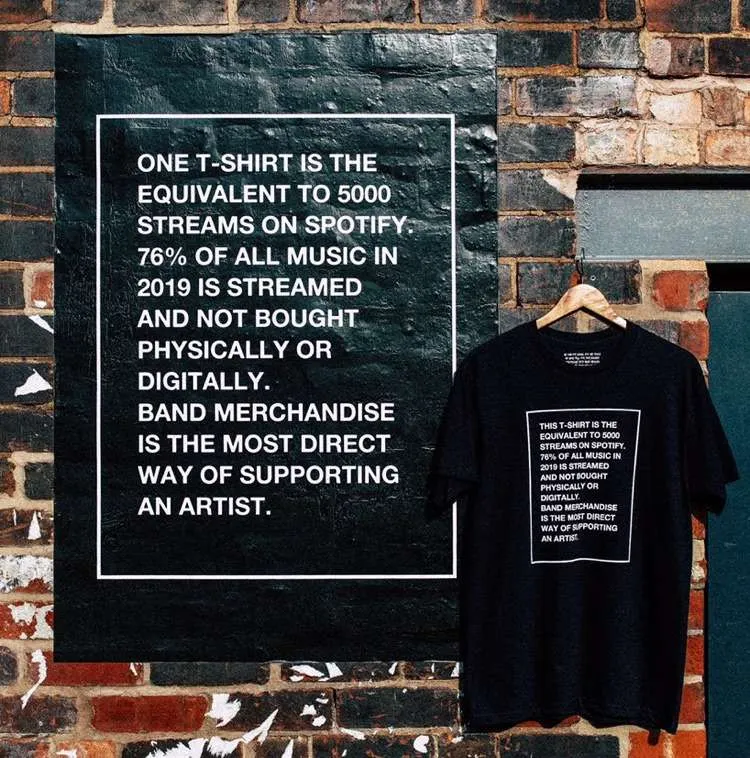As someone who follows and champions hundreds of independent and established bands, I constantly feel conflicted between wanting to show my support via my wallet and trying to keep my consumerist impulses in check.
Every week, I’m over-faced with new merch, gig tickets and physical releases, especially when Bandcamp Friday rolls around and my newsfeed is littered with bands trying to make the most out of the monthly event that allows them to save selling fees. And I get it, I really do, selling out venues, and producing new merch and physical releases is one of the only ways that independent artists can make ends meet. But in an era when music fans are feeling the pinch just as much, in a time when loneliness is on the rise and people are meeting their unmet social needs with material possessions, mindfulness of this new nefarious cultural shift is crucial.
Music Fans Aren’t Tighfisted; They’re Emptyfisted
In 2024 social media is littered with laments on how inflated the prices of seeing major artists are versus how much it costs to see a local indie act, but the closure of 125 grassroots venues in the UK in 2023 is proof that people no longer have the funds to keep venturing down to their local venue to support up-and-coming artists, let alone buy all the merch and new releases to boot. Furthermore, music fans are also constantly guilted by reminders of how their streams don’t contribute to the economic stability of artists.
Music fans cannot be blamed for how constrained their finances are; and sure, there are people out there paying three and four figures to see mainstream artists; more often than not, it is people with far deeper pockets than your average music fan. A recent study by The Food Foundation revealed that 15% of people in the UK went hungry in January 2024; the financial insecurity of artists is more of a reflection of the economic times than a lack of love for independent music. So rather than blaming them, turn your attention to the wider economy, take your ego out of the equation and realise that the income of artists is a sign of the times. To conflate the issue of the cost-of-living crisis, the number of artists releasing new music is skyrocketing. In 1984, 6,000 albums were released in the UK; in 2021, 55,000 reached streaming platforms every day. With every artist effectively tapping into the same well, is it any wonder that it running dry?
How The Music Landscape Has Evolved
The evolution of music from a community-centric tradition to a more consumer-driven industry is a complex journey. Historically, music served as a crucial part of communal life, reflecting shared experiences and cultural identities. It was an essential, unifying force within communities.
Today, the scenario has shifted significantly. The advent of digital technology has made music more accessible than ever, but it has also transformed it into a commodity. This change has particularly impacted independent artists, who are often not backed by major labels. These artists depend on income from merchandise sales, concert tickets, and music physical releases. For them, making music isn’t just about artistic expression; it’s also about economic survival.
Music fans face their own challenges in this new landscape. Amidst a cost-of-living crisis, supporting multiple artists financially can be difficult. Fans often have to make tough choices about where to spend their limited funds, which can affect how much support they can offer to their favourite artists.
The Cruxes of Consumerism in the Music Industry
Consumerism, particularly in the context of the music industry, can have detrimental effects on both artists and audiences. At its core, consumerism prioritises the acquisition of goods and services, in this case, music, over the deeper values and connections that music traditionally fostered. This shift towards viewing music primarily as a product to be consumed rather than an art form to be experienced can lead to a superficial engagement with music.
As consumerism in music has risen, paralleled by the growth of streaming platforms like Spotify, there’s been an increase in loneliness and a decrease in community-oriented experiences. Music, once a largely communal activity that brought people together for shared experiences, is now often consumed individually through headphones and screens. This isolated mode of consumption contributes to a sense of disconnection and loneliness, as the communal, connective aspects of music are diminished. Of course, gigs and festivals still exist, but many music fans have been priced out of gigs and festivals after the pandemic due to the rising costs of attending them.
Moreover, the relentless pursuit of the newest and most popular music can create a sense of inadequacy and a constant chase for fulfilment through consumption, rather than through meaningful connections and experiences. In the music industry, this can manifest as a never-ending quest for the latest hits, overlooking the deeper, more fulfilling experiences of engaging with music on a personal and communal level. This shift not only impacts listeners but also pressures artists to continuously produce content that fits the consumer mould, potentially stifling creativity and authentic expression.
Conclusion
In summary, the music industry today forces everyone within it to navigate a complex environment where artistry, consumerism, and economic challenges intersect. This situation affects artists, fans, and venues alike, highlighting the need to find a balance between the commercial aspects of music and its role as a vital cultural and communal force. It is too much to ask artists or fans to singlehandedly resolve the issue, but by being mindful of the issue and utilising technology for connection, we can at least work towards a future where artists don’t resent fans for not giving them their bottom dollar.
Article by Amelia Vandergast


